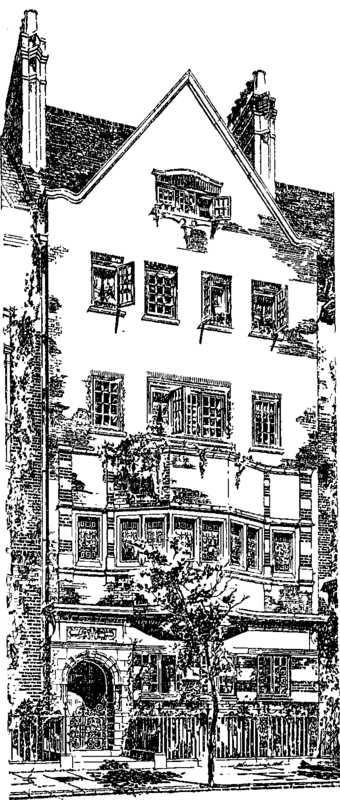Literary Beginnings. Part 7
Description
This section is from the book "The Life Of Francis Thompson", by Everard Meynell. Also available from Amazon: The life of Francis Thompson.
Literary Beginnings. Part 7
" In regard to the alterations I now enclose to you in the ' Fallen Yew,' by the correction of two words I hope that I have removed the obscurity, grammatical and otherwise. In ' Monica Thought Dying ' I have simply substituted ' eleven ' for ' thirteen.' The word ' eleven' fits the metre perfectly well without altering the rest of the line ; since the final ' e ' is a natural elision. Most elisions are artificial and conscious. Such is the elision of the ' a' in ' seraph,' whereby the line in the ' Fallen Yew' does scan, and so needs no alteration on that score. But there are a few words wherein we make unconscious elision, even in daily conversation. The final' en ' after a ' v' we always so elide; and consequently it is the exception for a poet to count the final ' en' in such words as 'heaven,' ' seven,' or 'eleven.'"
It is almost the rule that the author on the point of publishing should flout his public :-
" As for ' immeditatably' it is in all respects the one and only right word for the line ; as regards the exact shade of meaning and feeling, and as regards the rhythmical movement it gives to the line. So it must absolutely and without any question stand-woe's me for the public! But indeed, what is the public doing dans cette galere ? I believe, it is true, the public has an odd kind of prejudice that poems are written for its benefit. It might as well suppose that when a woman loves, she bears children for its benefit; or (in the case of the poem in question) that when a man is hurt, he bleeds for its benefit."
But whether he will or not, he bleeds and writes for mankind. If he stands by his " immeditatably," it is only because he knows that the public will come to stand by it too. He chooses to be obstinate on behalf of someone who waits for the word. In flouting his public, the poet is like a man who, scattering sweets for children, tosses them away only that they shall be recovered ; or, hiding them, is distressed if they are not found. Thompson put his sweets in difficult places; but only that he and the others might have the keener recreation.
After more sheets had been corrected and returned to Palace Court, he writes :-
" It seems to me that they read better than I had expected-particularly the large additions to ' To a Poet Breaking Silence,'1 which were written at a time when I was by no means very fit for poetry. Your interest in the volume is very dear to me. I cannot say I myself feel any elation about it. I am past the time when such things brought me any elation.
" I have not either of your books,2 and of course should most greatly value them. I need not say how deeply I rejoice at your success."
1 The poem by which my mother broke silence was " Veni Creator."
2 Among the things he wrote when A. M.'s book came to hand is this of " Domus Angusta," an essay they had discussed before. " Never again meditate the suppression of your gloomy passages. It is a most false epithet for anything you could ever write. You might as well impeach of gloominess my favourite bit in ' Timon,' with the majestic melancholy of its cadence-
' My long sickness Of wealth and living now begins to mend, And nothing brings me all things.'
Both that passage and yours are poignant; both are deeply sad; while yours has an added searchingness which makes it (in De Quincey's phrase) veritably ' heart-shattering'; but how can you call ' gloomy' what so nobly and resignedly faces the terror it evokes ? "

47 Palace Court
Continue to:
